If you haven’t seen Indian Matchmaking on Netflix yet, I would urge you to do so. You might start watching it shaking your head at the concept of arranged marriages; or at the need for modern, progressive Indians to find matchmakers like the main protagonist, matchmaker “Sima Taparia from Mumbai” as she likes to introduce herself; or the way she tutors every candidate in the show to “compromise” and “lower their expectations”.
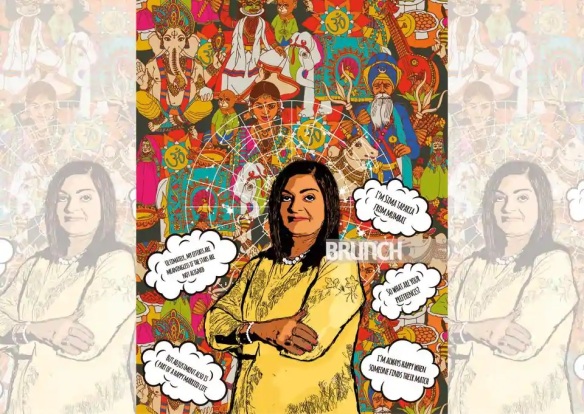
Image source: Parth Garg
You might even laugh at the absurdity of involving face readers and life coaches for the marriage process to be a “success”. But that laughter might soon turn into a self-reflection of sorts. Not necessarily for yourself or people you know, but an introspection into the values and criteria we, the people of the subcontinent, tend to hold, especially when it comes to finding (and keeping) life partners.
I have always loved satire. The way scripts of this genre can have you laughing your head off at a ‘joke’ one minute and tears rolling down your cheeks the very next, when you realize that the joke you laughed at, was not something to be laughed at.
AT ALL.
The way writers and actors of this genre can say seemingly trivial things all the while hitting a deeper nerve is impactful and thought-provoking, to say the least. It is this wittiness that makes this one of my favorite genres in entertainment; especially considering the social constraints in our society where a lot of things cannot be said openly, where adaab and tehzeeb often take precedence over truth and justice; where traditions are upheld blindly, irrespective of how absurd they may be or how much more harm than good they may be doing – to an individual, a family or the social fabric in general.
Coming back to Indian Matchmaking, while the obvious take-aways from the series is the commitment that Sima Taparia shows to her profession, the importance she gives to ‘compromise’ and ‘settling’ for a successful marriage and the bind that modern Indian (and Pakistani) men and women find themselves in today, vis-a-vis marriage. After all, most educated, affluent, progressive subcontinenters are raised with somewhat free reins today – encouraged to study at the best local and international universities, pushed to have successful careers and be independent thinkers. But when the time comes to get married, many of them are reined in by values, customs and familiarity.
Familiarity, you ask?
What I mean is, you might be a foreign-educated, liberal, Pakistani male ‘feminist’ all you want but when it comes to marriage, you might still want your wife to make you breakfast, serve you a hot cup of chai when you come home from work, and give you some space and time to unwind…even if she has also just come home from work and needs that hot chai and time to relax herself. What I’m trying to say is that we can be extremely forward in our thinking and advocate for change in all spheres of life, but a lot of what we perceive and desire comes from what we’ve seen growing up – our mums making chai for our dads and letting them unwind while they get dinner ready, in this case.
And this brings me to the less obvious take-aways from the show. Are we setting this generation of young desis up for disaster? Are we giving them standards that are too lofty for their own good (too much independence, too much pressure to achieve) and then further confusing them by using words like ‘compromise and settle’, ‘values and traditions’, when it comes to finding a spouse?
Take Aparna for instance. A high-achiever, an independent young woman, someone who is extremely sure of what she wants AND what she doesn’t. Sima often refers to her “too high standards” but during the course of the show, we find out where those standards possibly stemmed from. Her mother, a single parent, in a foreign land telling her little kids, “Don’t ever embarrass me in front of my community, don’t ever let me see ‘Bs’ on your report cards…”
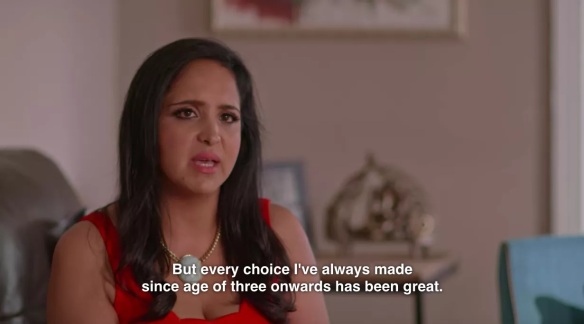
Image source: http://www.theringer.com
Do we, then, really wonder WHY Aparna sets such high standards for her husband-to-be?
Or Akshay and his mother. Ohhhh, this mother-son duo literally made me cringe. The mother was an extremely stressed, high Blood Pressure patient who berated her 25-year-old son for rejecting girls left, right and centre and for being ‘late’ at tying the knot.
Late…at 25!
And then we see Akshay, the absolutely clueless, indecisive Akshay, finally agreeing to hitch up with a girl, who appeared to be the type his mother would like. She belonged to a quiet, romantic city in India, dressed decently in Eastern wear and smiled demurely at everything.
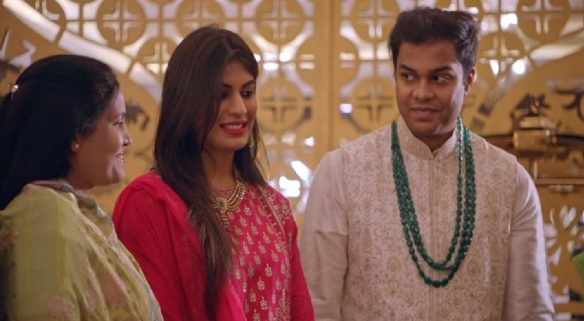
Image source: http://www.screenrant.com
But in the course of their conversations, she revealed that she wouldn’t want to stay at home post-marriage, and that she wanted to work. And why wouldn’t she? She was an MBA and CA after all! And while Akshay did think to himself that he would want his wife to do the things his mom did (ghardaari, bossing people around), they were shown to be getting engaged, I’m sure to the delight of his mother. But I couldn’t help but wonder how Akshay tackled the working girl/girl-like-mum clash in his indecisive mind, a plight many Pakistani men face too, I’m sure. They want the quintessential working woman – independent in her thought and finances – but who can run the house just the way ‘Mummy’ does and serve chai to them when they get home.
Are you a tad piqued yet? But isn’t it eye-opening too? Doesn’t it say a lot about our society, our expectations, our in-grained beliefs about marital life?
And then, there were the seemingly awesome guys like Vinay. He totally hit it off with Nadia, a tall, beautiful, accomplished girl who had trouble finding the ‘right’ guy primarily because of an identity clash.
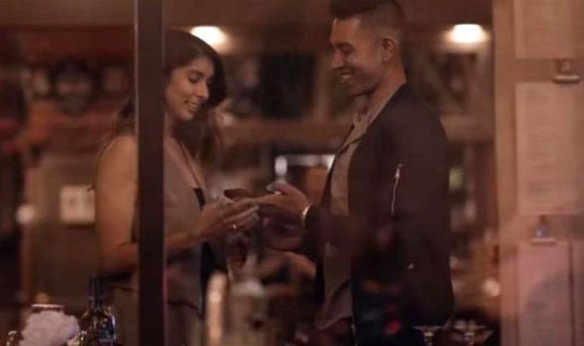
Image source: Netflix
She met Vinay through Sima and they had a lot in common, but he stood her up. Not once, but multiple times! Which brings us to the matter of inter-racial marriages in our society. It is a fact that certain communities still prefer to marry within their biraadree. And then we wonder why we are so intolerant as a nation. When a Pakistani Memon can’t welcome a Pakistani Punjabi bahu wholeheartedly, who are we to point fingers at the caste system in India or “racist America?”
I did like the outcome of Ankita’s search for a suitable spouse. The way her meet-ups, her conversations with Sima, and then her meeting with the life-coach made her realise that perhaps, it wasn’t time for her to get hitched just yet, was so refreshing amidst all the race and anxiety to get married, shown in all the other cases. That perhaps, she should focus on her personal growth, her career and make something of herself for the time being.
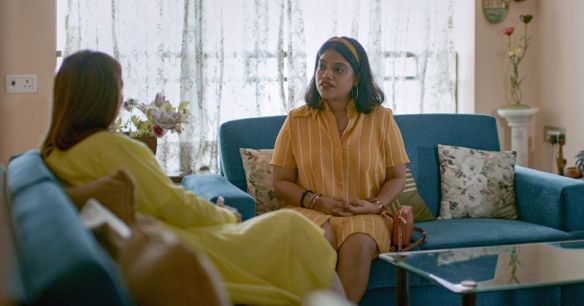
Image source: Netflix
I think that was a good approach. She tried but didn’t pressurize herself into getting married “because time was running out”. I have always believed that God made this world full of variety and choices. Not everyone comes with the same SOPs to live life, and the sooner we understand that, the more content we can be with what life throws OUR way.
Sorry for all the psychological and spiritual banter, although I really did like the concept of visiting and/or following a life coach as promoted in the show, who can help you in overcoming your weaknesses and strengthening your strengths (provided the life coach knows what he/she is doing, of course!).
I do feel this is a show worth watching. Some stories and characters will annoy you (it was Pradhyuman and Akshay for me, for sure). But it’s an eye-opener; a glimpse into all that is wrong with our perception of marriage. At the same, it highlights how complex it is for desis living abroad to get married. It can be extremely challenging to assimilate desi customs and values with the lifestyle and beliefs of one’s adopted country. Who do you relate to more? Your parents and your home country or your friends in this foreign land you call ‘home’?
These were only some of the cases and characters depicted in Season 1 of Indian Matchmaking. Watch the show to find out who YOU relate to the most!
Definitely makes for an entertaining but thought-provoking watch!
